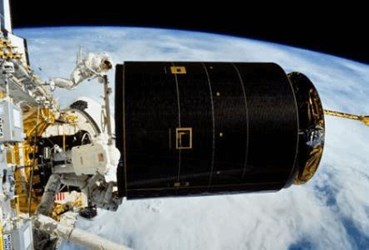Intelsat, OneWeb Merge Into First "Truly Global Broadband Company"
By Jof Enriquez,
Follow me on Twitter @jofenriq

Satellite services provider Intelsat SA is merging with OneWeb Ltd. in a share-for-share transaction to build the world’s first truly global broadband network, combining OneWeb’s constellation of low earth orbit (LEO) satellites with Intelsat’s fleet of geostationary orbit (GEO) satellites.
United States-based satellite startup OneWeb, with partner Airbus, is planning to launch an initial 900 microsatellites into low earth orbit beginning in 2018 to deliver affordable Internet access globally. It’s one of a handful of companies competing with Elon Musk’s Space Exploration Technologies Corp. (SpaceX), which is launching a 4,000-satellite broadband network.
Intelsat is a satellite services pioneer and major player that broadcasts television signals and broadband services to 200 countries and territories, but its GEO satellites do not blanket the entire earth surface. Intelsat satellites operate in Ku-band frequencies, just like OneWeb's network.
"This is one of the most compelling aspects of the OneWeb LEO satellites," Intelsat CEO Stephen Spengler, who will lead the combined company, told analysts in a conference call Tuesday. "OneWeb provides consistent ubiquitous coverage everywhere, including the polar regions that are important to mobility applications. The low-latency services are important for certain applications, especially voice or commanding of robotics and the total throughput of the OneWeb constellation will allow us to supplement certain coverages, in some cases avoiding capital expenditures."
"It will enable a smooth upgrade path for the customers...similar to when your cell operator moves you from 2G to 3G to 4G to LTE and eventually 5G," Greg Wyler, OneWeb's executive chairman and founder, told Reuters.
Intelsat was an early equity investor in OneWeb and took a minority equity stake in 2015, while Japan’s SoftBank Group announced a $1 billion investment in OneWeb late last year, reports the news service.
Under the terms of the merger, SoftBank will invest an additional $1.7 billion in cash and take a 39.9 percent voting stake in the combined company. The transaction is expected to be completed late in the third quarter of 2017.
SoftBank’s investments "will significantly strengthen Intelsat’s capital structure and accelerate our ability to unlock new applications, such as connected vehicles, as well as advanced services for our existing customers in the enterprise, wireless infrastructure, mobility, media and government sectors, while also reducing execution and other risks,” according to a joint statement.
The combined company will remain domiciled in Luxembourg, and will operate OneWeb’s new manufacturing facility in Exploration Park, Florida, and Intelsat’s facilities in McLean, Virginia. Spengler told analysts that the Exploration Park facility will be operational in early 2018, and will be the world's first, fully-automated, high-volume satellite assembly plant capable of manufacturing up to three satellites per day.
